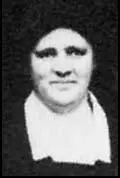Margaret Wintringham

Margaret Longbottom was born in 1879. Educated at Keighley Girls' Grammar School and Bedford College, she married Tom Wintringham, a timber inspector, in 1903.
A supporter of women's suffrage, Margaret Wintringham was a member of the National Union of Women's Suffrage Societies (NUWSS) and the Liberal Party. She was also a magistrate and a member of Grimsby Education Committee.
Tom Wintringham was elected to the House of Commons in 1920. The following year he died and Margaret was invited by the Louth Liberal Party to replace him as its candidate. In the subsequent by-election she was successful and became the second woman to sit in Parliament (Nancy Astor had been elected in 1919).
Over the next few years Wintringham campaigned for women's suffrage at twenty-one and the right for women to sit in the House of Lords. In 1924 she was a leading supporter of the Guardianship of Infants Bill. Other campaigns included the provision of state scholarships for girls as well as boys, equal pay and women only railway carriages. Wintringham was also an active member of the Temperance Society.
In the 1924 General Election Wintringham lost her seat. She became president of the Women's Liberal Federation but failed to win election to the House of Commons in 1929 and 1935. Margaret Wintringham died in 1955.
Primary Sources
(1) Crystal Eastman, Time and Tide (20th July, 1923)
Measured in terms of lost youth and forgotten happiness, there is perhaps no crime more devastating than the crime of child-assault. Yet in actual practice, as was brought out by Mr. Briant during the debate on the Home Office Vote in the House, "the penalties imposed would be ridiculous if they were not tragic in their leniency."
In his moving plea for more adequate penalties Mr. Briant was ably supported by Lady Astor and Mrs. Wintringham. Lady Astor recalled a case of a magistrate personally known to her who on the same day sentenced one man to two years' imprisonment for some small theft and another to six weeks' imprisonment for assaulting a little girl of seven. Mrs. Wintringham called attention to the fact that the men who commit these offences usually commit them again and again, being repeatedly sent to prison, and released, only to assault some other child. She urged that such cases be looked upon as mental degenerates and treated as such.
(2) Margaret Wintringham, speech, House of Commons (July, 1923)
I would ask the Home Secretary to appoint a Committee consisting of medical men and representative women and lawyers who have knowledge of crime that could inquire into this question with a view to setting up machinery, such as that which is working with such extraordinary success, although it is only in its early stages, in Birmingham and in Essex, which would bring about the examination from the psychological and scientific point of view of the men who commit these offences. Such machinery with proper medical inspection would give us more scientific knowledge than we have at present and would lead to the treating of these men as moral degenerates rather than as ordinary persons.
(3) Editorial, Time and Tide (17th October, 1922)
It is true that we have been most singularly fortunate in our first two women members. They have set a standard to which few could hope to attain. Nevertheless, even though we can scarcely hope that many future women M.P.'s will achieve so conspicuous a success as have the first two it is undoubtedly most desirable to add to their number. In the last Parliament Lady Astor and Mrs. Wintringham were doing the work often ordinary people. No human being can be expected to keep going indefinitely at such a pressure. We publish today the first of a series of three articles dealing in some detail with the chances of the prospective women candidates who have been adopted up to the present. It seems clear from a close scrutiny of the list of seats placed at their disposals that none of the Parties have been prepared to pay much more than lip service to the proposition that it is desirable to have women in Parliament. The Independent Liberals head the list so far as numbers are concerned, but even the Independent Liberals do not so far appear to have given their women candidates any safe seats. Perhaps, however, there was some excuse for the 'Wee Frees,' seeing that they had not many safe seats to give.
Few people who have closely followed the course of events in the last Parliament will be found to deny that there is need in the next for a greater representation of women. And this not only on the general grounds that it is desirable to have national political problems fully envisaged from every possible angle, but also and at the present time particularly because there are still today a certain number of subjects the importance of which tends to be underrated by many of the men in Parliament but is adequately appreciated by women. The value of Lady Astor and Mrs. Wintringham has lain not only in their contributions upon general political questions but also in the steady hard work they have put in over such matters as the Criminal Law Amendment Bill (whose passage was largely due to their efforts), the Equal Guardianship of Infants Bill, the Women Police question (that any Women Police at all have been retained in the London area is due almost entirely to them), and other matters of the kind. It has lain also in the fact that they could be trusted to understand the point of view of the professional and working woman.
